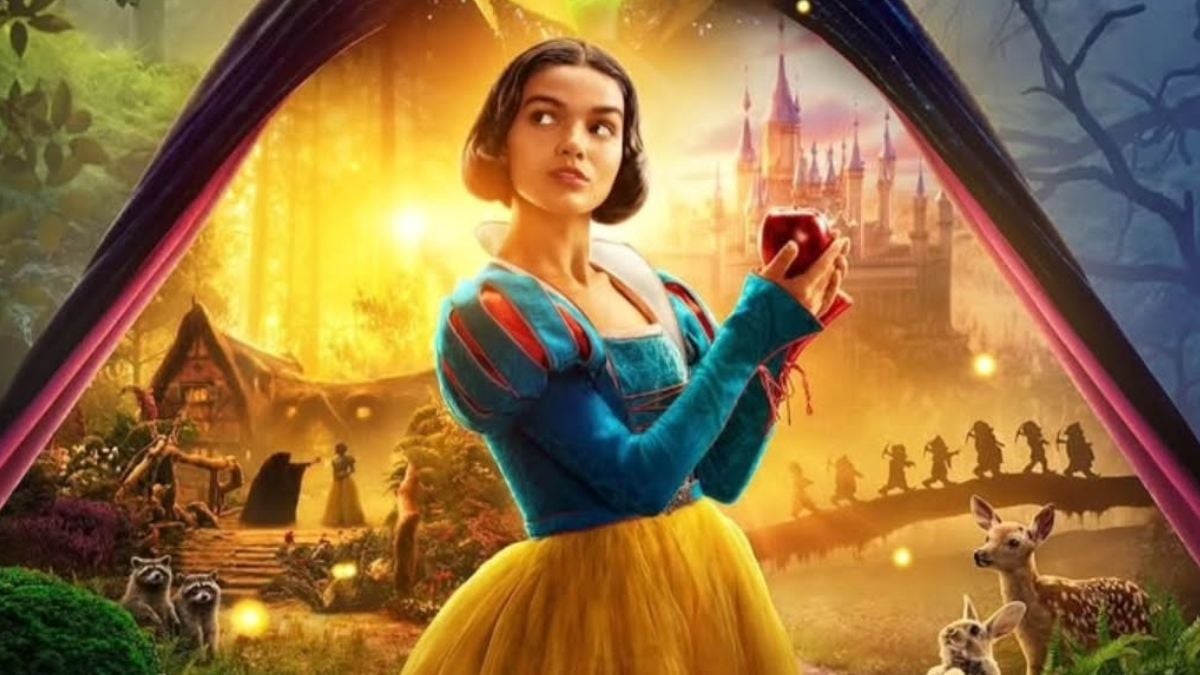Disney’s latest live-action adaptation of Snow White has become one of the most controversial film releases in recent history. With debates raging online and across media platforms, the film has been accused of being too “woke,” disrespecting the original tale, and bowing to modern political correctness. But is the backlash truly organic, or is it a carefully orchestrated spectacle designed to fuel engagement, deepen ideological divides, and ultimately boost profits?
The Dominant Narrative: “Go Woke, Go Broke”
The most vocal critics argue that Disney has sacrificed storytelling in favor of pushing a progressive agenda. The casting of Rachel Zegler as Snow White, a Latina actress taking on the traditionally European role, sparked controversy from the outset. Critics claim the film’s messaging undermines the classic themes of love, heroism, and adventure, replacing them with modern sensibilities that feel forced and unnatural. Some have even called the movie an insult to the legacy of Walt Disney himself.
Others point to the studio’s decision to change the portrayal of the Seven Dwarfs, allegedly in an effort to avoid outdated stereotypes. This move has been met with mixed reactions, with some praising it as progressive and inclusive while others deride it as unnecessary virtue signaling.
The Alternative View: Manufactured Controversy and Corporate Strategy
What if the backlash isn’t purely grassroots outrage but rather an intentional marketing strategy? Disney has a long history of using controversy to drive attention to its films. From The Little Mermaid remake to The Eternals, the company has learned that outrage—whether real or amplified—translates into free publicity. The Snow White discourse, filled with impassioned debates, trending hashtags, and endless YouTube rants, ensures the movie remains at the center of cultural conversations.
Furthermore, framing the movie as a battleground for the “woke vs. anti-woke” culture war benefits more than just Disney. It plays directly into the media ecosystem that thrives on conflict. Right-wing commentators capitalize on the backlash to fuel their audience’s anger, while progressive voices defend the film, amplifying its presence in mainstream discussions. Social media algorithms reward heated debates, ensuring that Snow White remains relevant long before its release.
The Bigger Picture: Power Structures and Narrative Control
Beyond the immediate debates over casting and creative choices, this controversy reveals deeper truths about modern media consumption. Are audiences truly angry about a Snow White remake, or are they being conditioned to react to carefully curated cultural battles? Who benefits from these repeated cycles of outrage? And why do studios, corporations, and influencers alike continue to stoke the flames of division?
By focusing on surface-level grievances, we ignore larger industry issues—such as Hollywood’s reliance on recycled intellectual property rather than original storytelling. We become distracted from more pressing artistic concerns: Are filmmakers allowed creative freedom, or must they adhere to predetermined political narratives? And in the end, are audiences being manipulated into a never-ending loop of manufactured outrage?
LISTEN TO FULL ARTICLE
The Final Question
Rather than simply choosing a side in the Snow White debate, perhaps the more important question to ask is: Are we truly outraged, or are we being played?
Whether you love or hate the film, one thing is certain—Disney has once again proven that controversy is the most profitable form of marketing. And as long as audiences continue to engage in these battles, the cycle will repeat with every new release.

